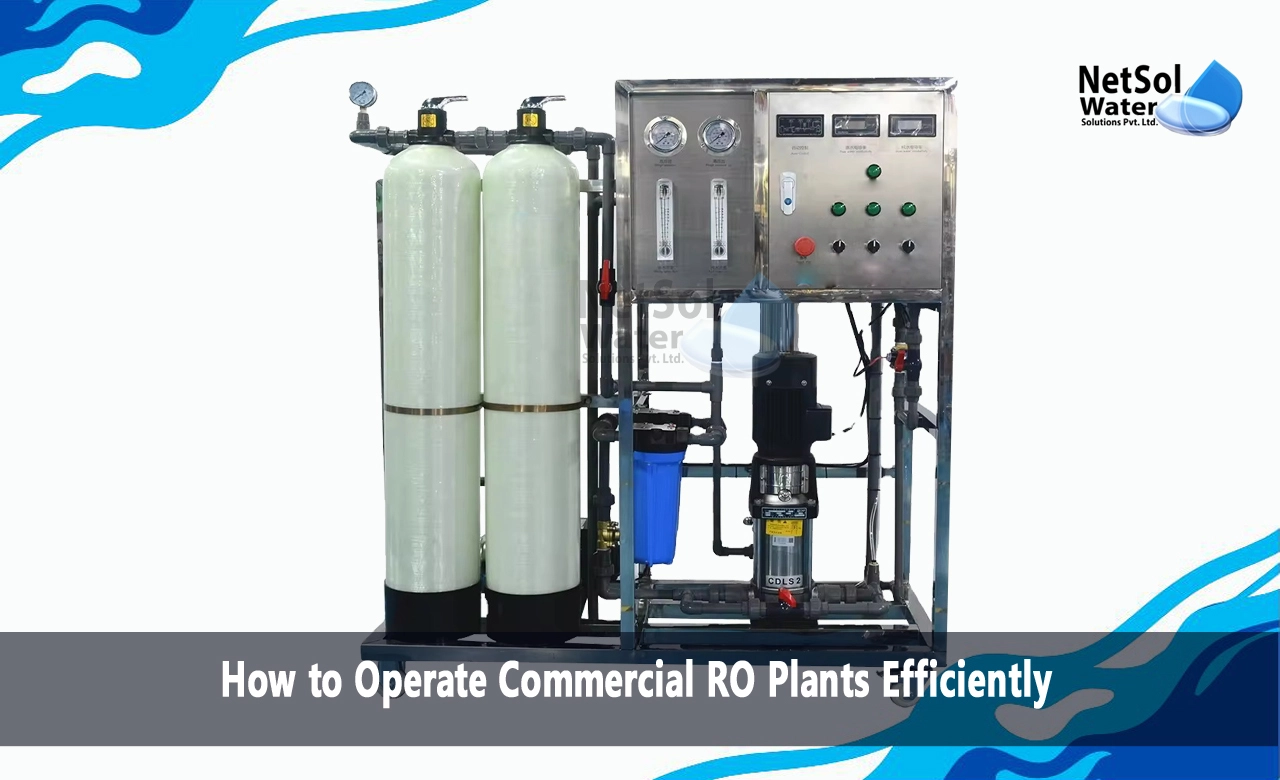How to Operate Commercial RO Plants Efficiently?
Commercial Reverse osmosis (RO) plants are really important for industries that need clean water for different jobs. Whether it's making drinks or medicine, having clean water is super necessary. These plants help keep water quality high and make sure companies follow the rules about it. They're a big deal in many industries and make sure everything runs smoothly.
Understanding the RO Process
The process of reverse osmosis (RO) is crucial for purifying water across various uses, from household drinking water to industrial applications. It effectively removes impurities, making it widely adopted globally.
To ensure the success of the RO process, it's important to use good quality membranes and maintain them appropriately. Also, closely monitoring factors like water quality and pressure is necessary for the process to work well. By paying close attention to these details, reverse osmosis consistently provides clean, purified water for diverse needs.
Pretreatment Considerations
Proper pretreatment of the feed water is essential for the efficient operation of commercial RO plants. This step helps to remove suspended solids, organic matter, and other contaminants that can potentially foul or damage the RO membranes. Common pretreatment methods include multimedia filtration, activated carbon filtration, and chemical pretreatment (such as the addition of antiscalants or biocides).
Membrane Maintenance and Cleaning
Over time, RO membranes can become fouled or scaled, leading to decreased performance and potentially compromising the quality of the produced water. Regular maintenance and cleaning of the membranes are crucial to ensure optimal operation and extend the lifespan of these expensive components. Cleaning procedures may involve chemical cleaning agents, such as acids, bases, or specialized membrane cleaners, as well as mechanical cleaning methods like flushing or backwashing.
Energy Efficiency Measures
Commercial RO plants can be energy-intensive operations, with high energy consumption required for the high-pressure pumps and other auxiliary equipment. Implementing energy-efficient measures can significantly reduce operating costs and improve the overall sustainability of the plant. These measures may include the use of energy recovery devices, variable frequency drives, and optimized pump configurations.
Monitoring and Control Systems
Effective monitoring and control systems are essential for ensuring the efficient operation of commercial RO plants. These systems allow operators to monitor key parameters, such as feed water quality, permeate quality, pressure levels, and membrane performance. Advanced control systems can also automate various processes, optimize operating conditions, and provide real-time data analysis and alerts, enabling timely interventions and preventive maintenance.
Conclusion
Running commercial RO plants well means looking at lots of things, like treating the water before it goes through the system, keeping the membranes clean, using energy wisely, and having good ways to watch and control everything. By doing things the best way and using the newest technology, the people who run the plants can make sure they work well for a long time, keep the water clean, and spend less money on running them. It's also important to train the staff regularly and keep up with what's new in the industry to make sure the plants keep working efficiently for a long time.
Do you need an advice or assistance on selecting the best water and waste water treatment unit? We have solutions for all your problems!
Let us now your problem, our experts will make sure that it goes away.
For an assistance or related query,
Call on +91-965-060-8473, Or write us at enquiry@netsolwater.com



